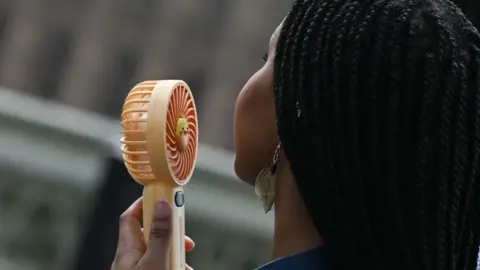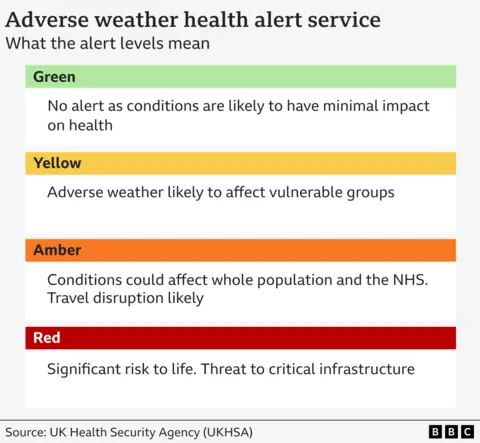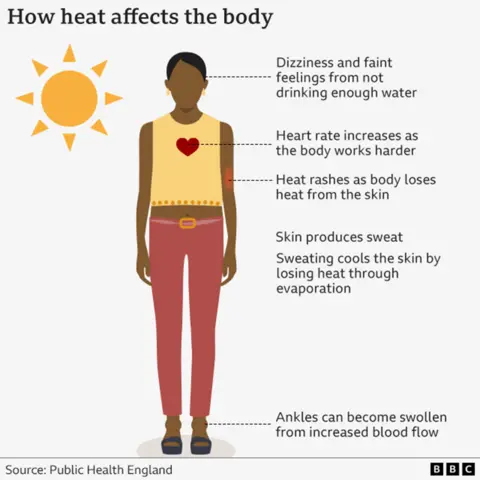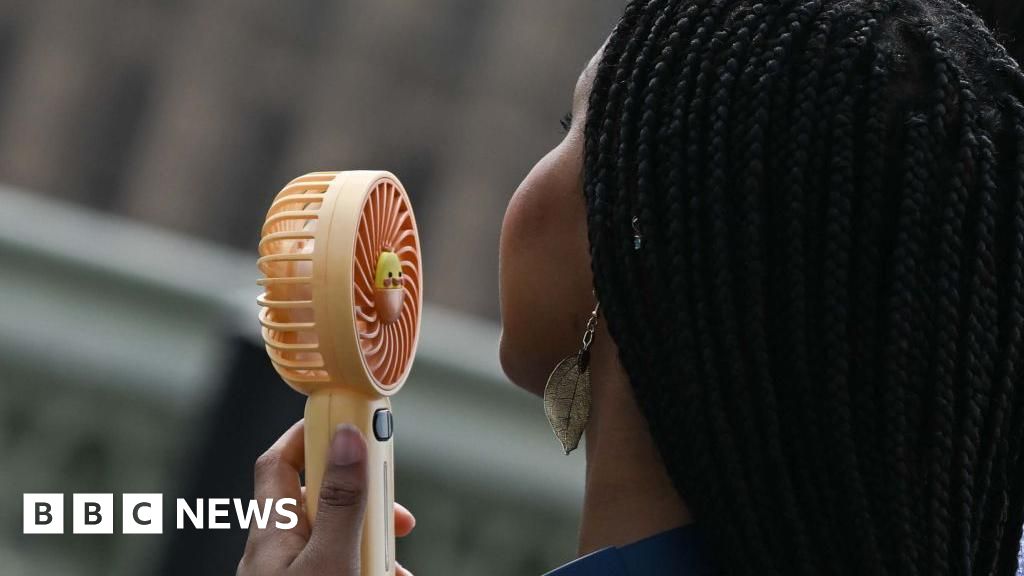 Getty Images
Getty ImagesYellow heat health alerts are in effect for London, the South East, South West, East Midlands, West Midlands and East of England.
The alerts – which mean high temperatures pose a potential health risk to vulnerable people – will remain in place until 10:00 BST on Tuesday 15 July.
How does the weather health alert system work?
The weather alert service warns the public in England when high or low temperatures could damage their health.
The system is run by the UK Health Security Agency and the Met Office.
It includes both heat health and cold health alerts
Heat health alerts are issued between 1 June and 30 September, and cold health alerts are published between 1 November and 30 March.
As well as warning the public, the system sends guidance directly to NHS England, the government and healthcare professionals during periods of adverse weather.
Alerts are categorised according to severity and include:
- headline weather conditions expected in the coming days
- details of how weather conditions will affect each region
- links to additional information, advice and guidance
The system was designed to help reduce illness and deaths during periods of extreme weather.
What do the alert levels mean?
The level of alert is based on Met Office forecasts and data.
There are four levels ranging from green (least severe) to red (most severe):
Green
Green is the normal level, when advice is given on how people should prepare to respond if temperatures rise or fall.
Yellow
Yellow alerts are issued during periods of hot or cold weather that are only likely to affect those who are particularly vulnerable, for example the elderly, or those with existing health conditions.
Amber
Amber alerts are issued in situations that could potentially put the whole population at risk. The NHS may see increased demand on GPs and ambulances, for example.
Travel disruption is also likely.
Red
A red alert is the most severe.
It is issued in situations when hot or cold weather would be a significant risk to life, even for the healthy population, and could lead to failures of critical national infrastructure, such as power outages or roads and rail lines being closed.

What does hot weather do to the body?
As the body gets hotter, blood vessels open up. This leads to lower blood pressure, and makes the heart work harder to push the blood around the body.
This can cause mild symptoms such as an itchy heat rash or swollen feet, as blood vessels become leaky.

At the same time, sweating leads to the loss of fluids and salt and, crucially, the balance between them in the body changes.
This, combined with the lowered blood pressure, can lead to heat exhaustion and heatstroke. Symptoms include:
- dizziness
- nausea
- fainting
- confusion
- muscle cramps
- headaches
- heavy sweating
- tiredness
If blood pressure drops too far, the risk of heart attacks rises.



